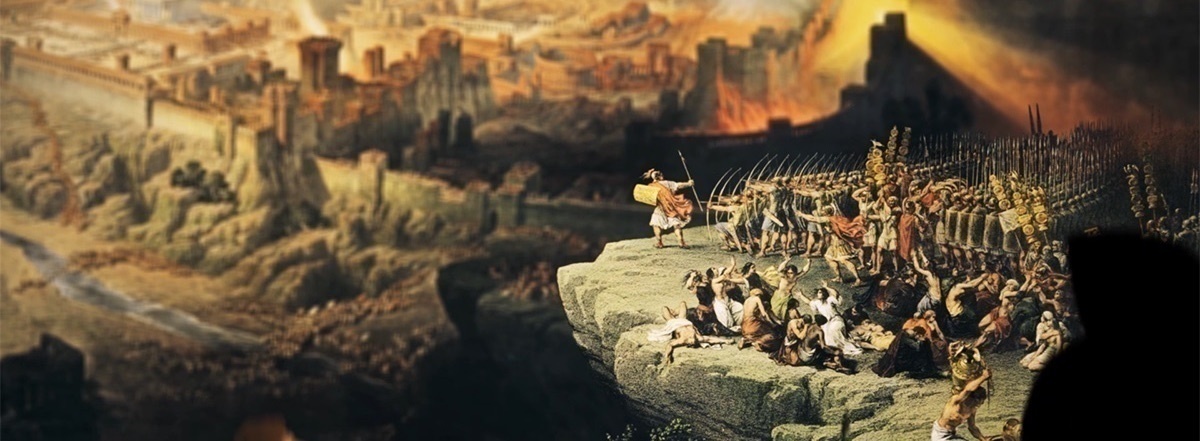 |
The Greeting – As Salaamu Alaykum, Peace Be Upon You: Is Altruistic Salaamism since It Implies ‘I am Responsible for Your Safety’ | source |

Here is a brief history of Jerusalem since its destruction in AD 70:
After the destruction of Jerusalem by Titus in AD 70, the city lay dormant and unoccupied except for a few Roman military camps. Jerusalem was so thoroughly destroyed that much of the rubble was left in place. But eventually, new buildings were built on top of the old. This cycle has repeated itself many times. As a result, the ground level of Jerusalem has been raised significantly over the last 2,000 years. For example, some of the exposed streets that go back to the Roman period are more than 10 feet below the level of the current city streets.
After tearing the city apart, Roman Emperor Hadrian rebuilt it on a Roman plan. This included the usual cardo (or “main street”), which went north and south, a forum, Roman temples, etc. He also expanded the city walls to extend further north. These walls reached several blocks beyond the northern boundary of the “Old City” walls we see today.
Another huge change to the city occurred after Roman Emperor Constantine converted to Christianity. He began to pour resources into the region. This started what is now known as the Byzantine era. During the Byzantine era, the population of Jerusalem increased. Many new buildings, including churches, were constructed during the 4th through 6th centuries. The most famous of these churches include the Church of the Holy Sepulcher, the Church of the Apostles, and the Nea Church. But all of these churches suffered damage or destruction in later invasions by Persians and Muslims.
History of Jerusalem since its Destruction – The Last Thousand Years
While much of Jerusalem suffered destruction from these later attacks, the outline of the walls remained about the same. Eventually, the walls were rebuilt and the city was well fortified when the Crusaders came to retake Jerusalem from the Fatimid Islamic rulers in 1099. Following the Crusader takeover of Jerusalem, the size of the walled city shrank considerably—even smaller than the Old City walls of today. This was due to the smaller population, more limited resources, and need to rebuild the fortifications to guard against impending attack.
Jerusalem was re-conquered by the Islamic Ayyubid dynasty under Saladin in 1187 and some rebuilding was done. Then, over the next three centuries, Jerusalem suffered from various attacks and conquests by the Tartars, Muslims, Crusaders, and probably even suffered from the bubonic plague. During this period, there were various building projects, but no significant expansion of the walls.
Eventually, the Ottoman Turks took the city in 1517 under Suleiman the Magnificent. He rebuilt the city walls, and his layout is what we see today around the “Old City.” These walls continued to be repaired and rebuilt over the 400-year period of Ottoman rule. Today, certain sections of the walls give a visual history of Jerusalem reaching back over 2,000 years.
So, that’s a brief history of Jerusalem since its destruction during the first century AD. All of these events have left their mark on the “Old City” of Jerusalem you see today. Jerusalem is like no other city in the world with regard to its historical significance. Everywhere you look, there is a story to tell.
History of Jerusalem since its Destruction



No comments:
Post a Comment